Russian plane crash: UK-Egypt ties take a hit
- Published
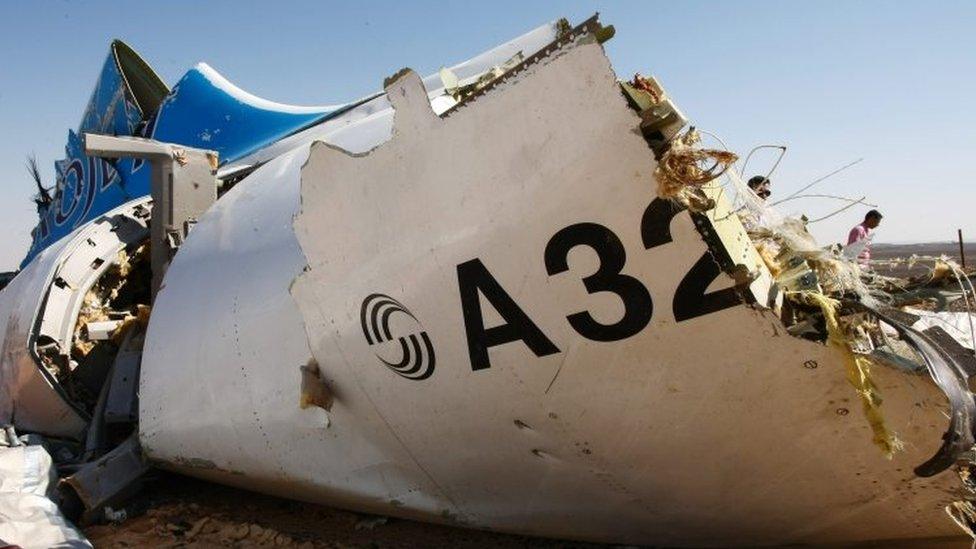
Most of the 224 victims on board the Airbus 321 that crashed in Sinai were Russian nationals
One week after a Russian airliner broke up in the skies over Egypt's Sinai Peninsula, there is still no official conclusion or consensus on what shattered the plane, killing all 224 passengers and crew on board.
In the urgent search for answers, relations between London and Cairo have taken a hit.
"We touched some raw nerves," admits a senior British government source present during tense talks this week which followed the UK's announcement that the plane "may well have been brought down by an explosive device".
That evoked a worst-case scenario that it may have been the work of the local jihadist group Sinai Province, which pledged allegiance to the so-called Islamic State a year ago.
Its claims to have downed the Airbus were initially treated with scepticism.
"They're jumping to conclusions," Egyptian Foreign Minister Sameh Shoukry angrily declared when I reached him by telephone shortly after the UK prime minister's office announced a suspension of all flights in and out of the popular tourist enclave on the southern edge of the Sinai which is meant to be highly protected.
But since then a number of other countries have followed suit in suspending flights or adjusting travel advice, as some new intelligence is shared and scrutinised.
Even Russia, which initially sprung to the defence of its close ally, soon took the decision to suspend all flights not just to Sinai, but across Egypt.
So far, US officials have been more cautious in their assessments of what is said to be still insufficient intelligence.
'Certain scenario'
On Saturday, the Egyptian official leading the five-country investigation panel confirmed that a loud noise was heard in the last second of the cockpit voice recording.
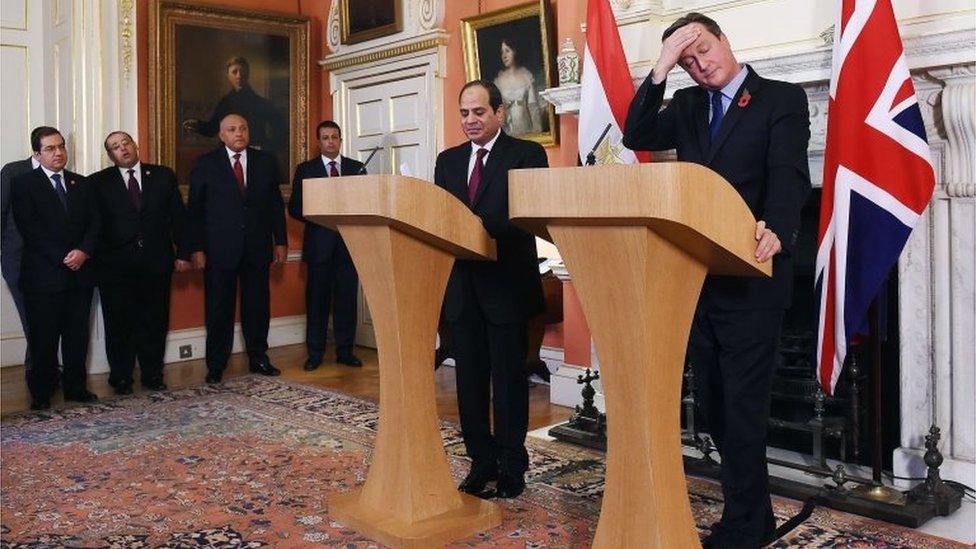
President Sisi (2nd right) was in London when news broke about Britain's judgement about safety in Sinai
But Ayman al-Muqqadam refused to be drawn into whether this suggested a technical fault or an act of terrorism.
For Egypt, what Mr Maqqadam obliquely referred to as "a certain scenario" has calamitous consequences: its tourism sector is vital to any hope of reviving a struggling economy and the reputation of its much vaunted security forces in the battle against an Islamist insurgency is at stake.
Earlier in the week, I had asked Egypt's President Abdul Fattah el- Sisi whether his forces were in complete control in Sinai.
The former army chief reacted immediately: "It is under our full control, of course."
"We will never accept," he insisted, "that we do not have full control over our country."
In extraordinarily awkward timing, the president had just landed in London for his first official visit when news broke about Britain's judgment about safety in Sinai.
British officials had hoped President Sisi and Prime Minister Cameron would emerge from their talks on Thursday with a "shoulder-to-shoulder" moment to send a very public symbol of their resolve.
But their proposal to announce a detailed "joint plan" was scuppered by Egypt.
"They tried to put us on the spot," one Egyptian official told me. "Our own teams need time to study the details."
'Very big ask'
Egyptian officials also said they wished their British counterparts would have done more to publicly acknowledge the catastrophic impact their move had on a sector which provides millions of jobs and is a key source of foreign currency at a time when reserves are running perilously low.
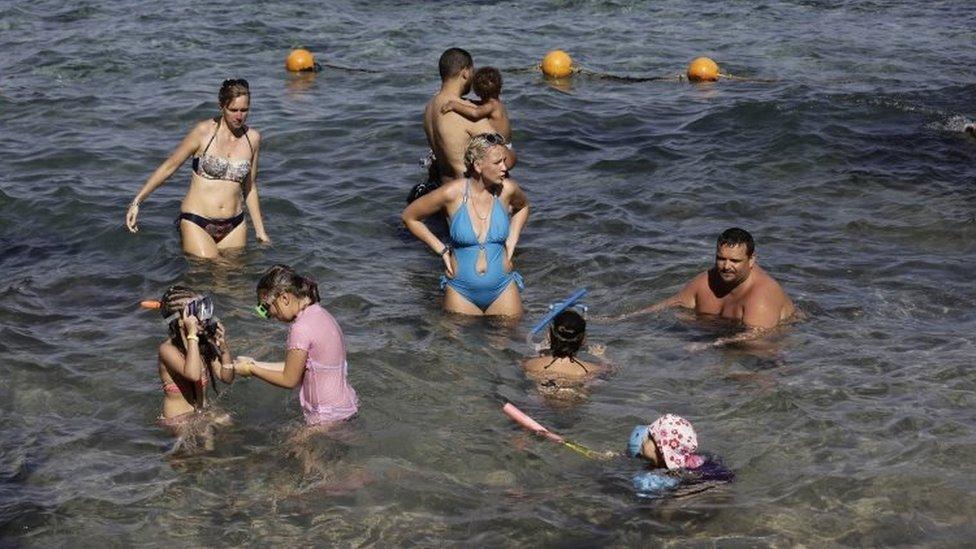
Millions of tourists - including many from Russia - visit Egyptian resorts every year
"It's wholly understandable Cairo was aggravated by London's decision to abruptly suspend flights," remarked Dr H A Hellyer, senior fellow at the Atlantic Council and the Royal United Services Institute.
But he added: "If the Egyptian government doesn't learn from this episode, in terms of crisis management and showing that security really is being taken care of, there may be other uncomfortable situations in future."
Over the past week, co-operation has been stepped up on many levels.
A senior Egyptian official told me his government had responded to "every single British request", including an extra battalion of troops in and around the airport.
A British source acknowledged it had been a "very big ask" and their concern about continuing gaps had led to the decision to halt UK flights.
Upsurge in attacks
The focus now is on getting 20,000 stranded British tourists home on return flights which are gradually being resumed.
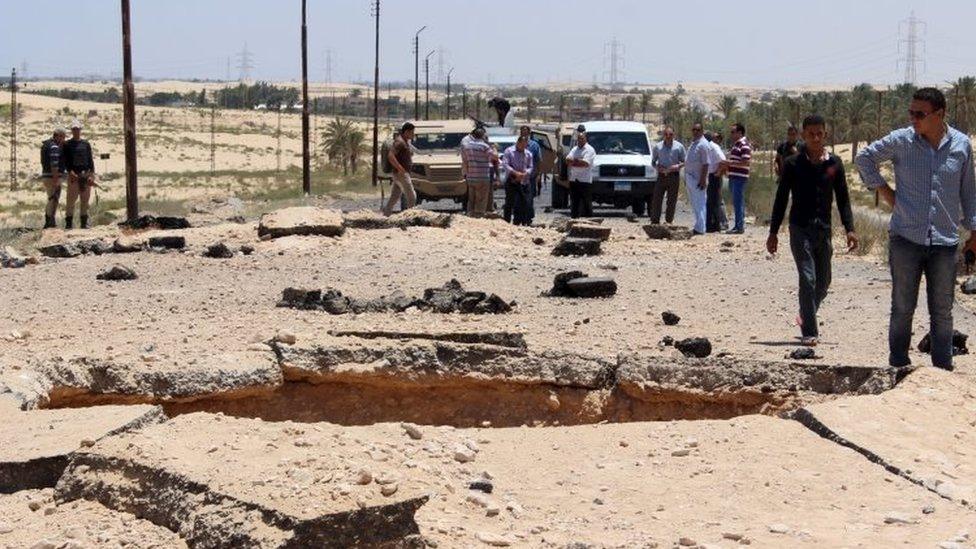
Militants have recently carried out a string of deadly attacks in Sinai peninsula
Egypt's airport security is now under a global microscope as the world's media converge on the Red Sea resort area.
Egypt must also confront growing disquiet that this local Islamic State affiliate may be growing in its resources and ambition.
A number of militant groups, drawn from Bedouin tribes resentful of years of official neglect, operate in the hardscrabble desert of northern Sinai.
Hundreds of soldiers and police have been killed in attacks. In recent weeks, Egyptian forces stepped up operations in what is a closed military zone after an assault in July killed, according to official figures, 21 soldiers.
Other accounts of the worst attack on the military since the 1973 war put that figure even higher.
Two major attacks in Cairo this summer - including the assassination in broad daylight of the public prosecutor, and a powerful bomb that ripped through the Italian consulate - raised more questions.
Egyptian officials blame the attacks on radicalised elements of the banned Muslim Brotherhood, while others posit it could have been the work of IS fighters who travelled from Syria, via Libya, to Egypt.
Western officials express concern that Egypt's harsh security laws and punitive strikes in Sinai are driving more Egyptians into the ranks of extremists.
There's also the threat posed by the 1,200 km (745-mile) long border with volatile Libya, where IS also has a stronghold. It was one of the main issues on President Sisi's agenda for his British visit before this crisis erupted.
"I warned two-and-a-half years ago that the fighters in Syria will pose a threat to all of us - but it took them a whole year to study the issue," he replied when I asked about the effectiveness of Western air strikes against IS in Iraq and Syria.
"We now say there is a threat in Libya, and I hope they will not take a long time to respond."
The issues are urgent. But they will take time and resources.
"We've got to get on with it," is how one senior British government official put it, with some characteristic understatement.
For Egypt, it is impossible to overstate how serious this moment is.
- Published13 August 2015
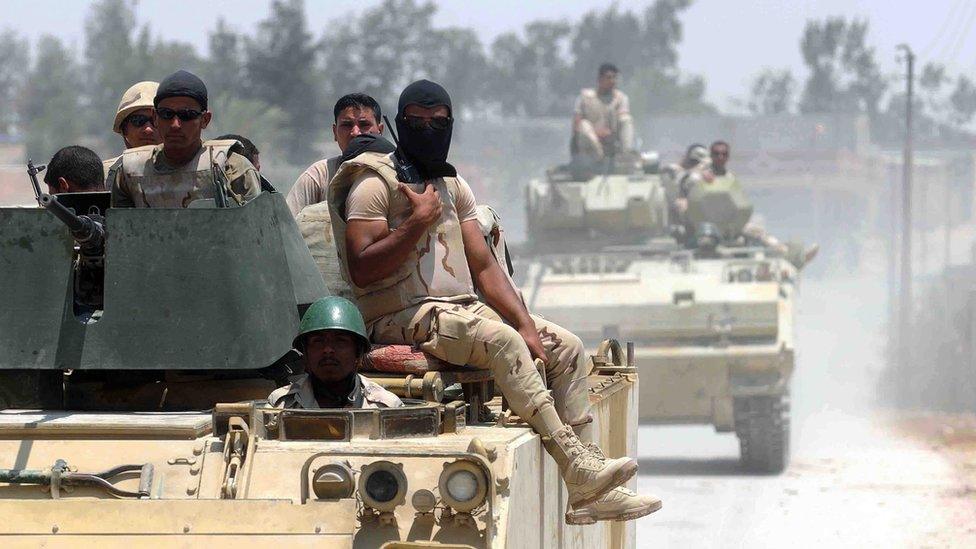
- Published1 December 2020
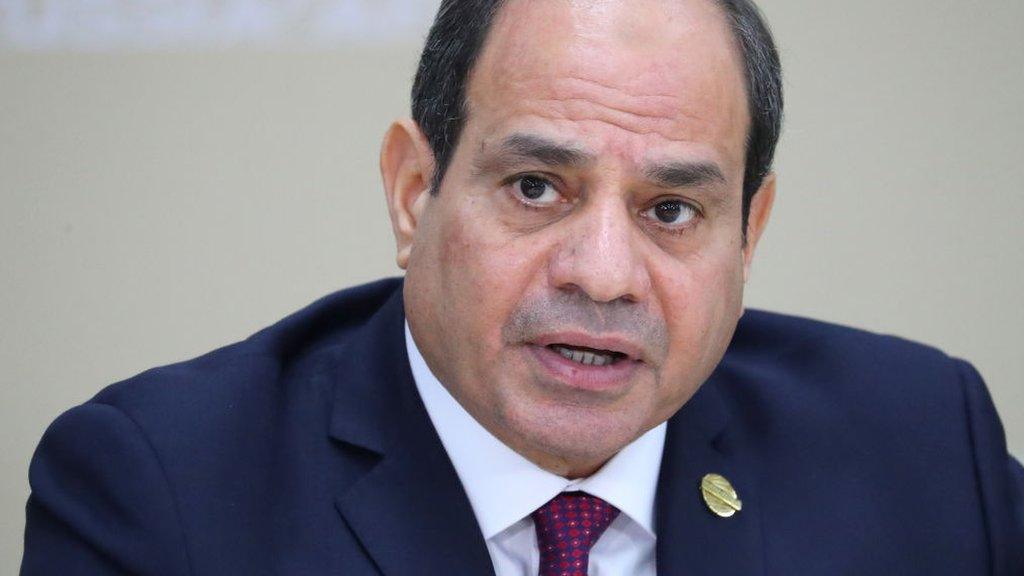
- Published17 June 2019
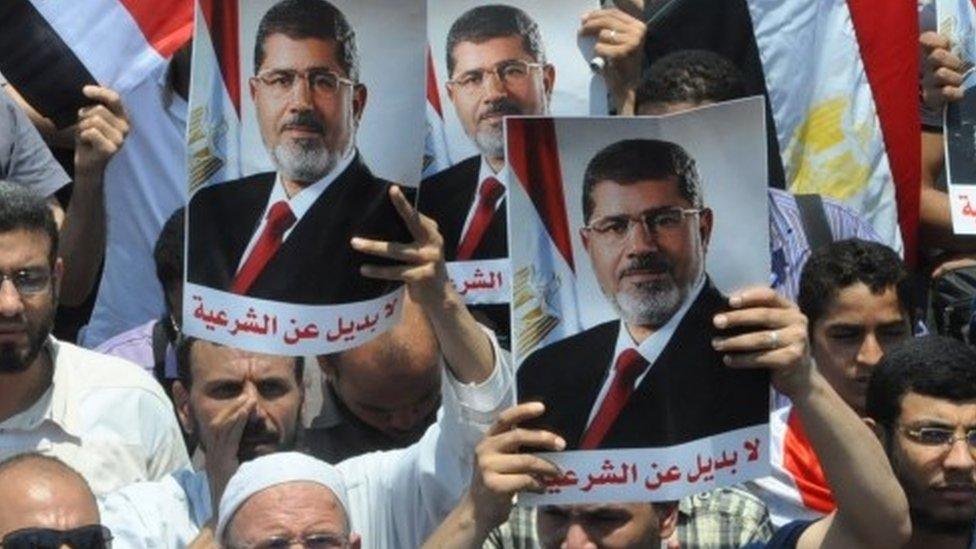
- Published25 December 2013
